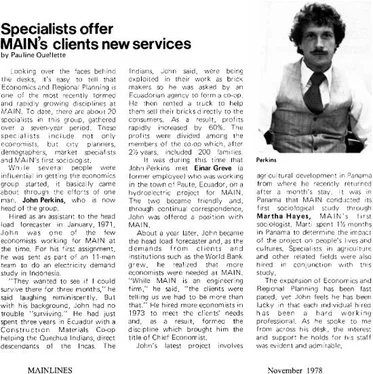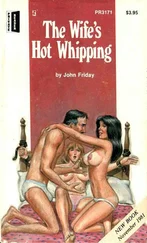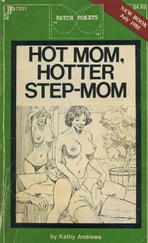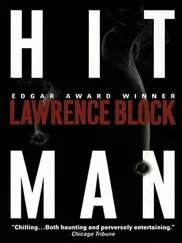John Perkins - Confessions of an Economic Hit Man
Здесь есть возможность читать онлайн «John Perkins - Confessions of an Economic Hit Man» весь текст электронной книги совершенно бесплатно (целиком полную версию без сокращений). В некоторых случаях можно слушать аудио, скачать через торрент в формате fb2 и присутствует краткое содержание. Жанр: economics, на английском языке. Описание произведения, (предисловие) а так же отзывы посетителей доступны на портале библиотеки ЛибКат.
- Название:Confessions of an Economic Hit Man
- Автор:
- Жанр:
- Год:неизвестен
- ISBN:нет данных
- Рейтинг книги:4 / 5. Голосов: 1
-
Избранное:Добавить в избранное
- Отзывы:
-
Ваша оценка:
- 80
- 1
- 2
- 3
- 4
- 5
Confessions of an Economic Hit Man: краткое содержание, описание и аннотация
Предлагаем к чтению аннотацию, описание, краткое содержание или предисловие (зависит от того, что написал сам автор книги «Confessions of an Economic Hit Man»). Если вы не нашли необходимую информацию о книге — напишите в комментариях, мы постараемся отыскать её.
Confessions of an Economic Hit Man — читать онлайн бесплатно полную книгу (весь текст) целиком
Ниже представлен текст книги, разбитый по страницам. Система сохранения места последней прочитанной страницы, позволяет с удобством читать онлайн бесплатно книгу «Confessions of an Economic Hit Man», без необходимости каждый раз заново искать на чём Вы остановились. Поставьте закладку, и сможете в любой момент перейти на страницу, на которой закончили чтение.
Интервал:
Закладка:
This concept and its corollary are used to justify all manner of piracy — licenses are granted to rape and pillage and murder innocent people in Iran, Panama, Colombia, Iraq, and elsewhere. EHMs, jackals, and armies flourish for as long as their activities can be shown to generate economic growth — and they almost always demonstrate such growth. Thanks to the biased “sciences” of forecasting, econometrics, and statistics, if you bomb a city and then rebuild it, the data shows a huge spike in economic growth.
The real story is that we are living a lie. Like my MAIN résumé, we have created a veneer that hides the fatal cancers beneath the surface. Those cancers are exposed by the X-rays of our statistics, which disclose the terrifying fact that history’s most powerful and wealthiest empire has outrageously high rates of suicide, drug abuse, divorce, child molestation, rape, and murder, and that like a malignant cancer, these afflictions spread their tentacles in an ever-widening radius every year. In our hearts, each of us feels the pain. We cry out for change. Yet, we slam our fists to our mouths, stifling those cries, and so we go unheard.
It would be great if we could just blame it all on a conspiracy, but we cannot. The empire depends on the efficacy of big banks, corporations, and governments — the corporatocracy — but it is not a conspiracy. This corporatocracy is ourselves — we make it happen — which, of course, is why most of us find it difficult to stand up and oppose it. We would rather glimpse conspirators lurking in the shadows, because most of us work for one of those banks, corporations, or governments, or in some way are dependent on them for the goods and services they produce and market. We cannot bring ourselves to bite the hand of the master who feeds us.
That is the situation I was pondering as I sat staring at the headlines on the screen of my computer. And it raised a number of questions. How do you rise up against a system that appears to provide you with your home and car, food and clothes, electricity and health care — even when you know that the system also creates a world where twenty-four thousand people starve to death each day and millions more hate you, or at least hate the policies made by representatives you elected? How do you muster the courage to step out of line and challenge concepts you and your neighbors have always accepted as gospel, even when you suspect that the system is ready to self-destruct? Slowly, I stood up and headed back to the house to pour myself another cup of coffee.
I took a short detour and picked up my copy of the Palm Beach Post, lying near the mailbox beside our driveway. It had the same Bechtel-Iraq article, copyrighted by the New York Times . But now I noticed the date on the masthead: April 18. It is a famous date, at least in New England, instilled in me by my Revolutionary War— minded parents and by Longfellow’s poem:
Listen, my children, and you shall hear
Of the midnight ride of Paul Revere,
On the eighteenth of April, in Seventy-five;
Hardly a man is now alive
Who remembers that famous day and year.
This year, Good Friday happened to fall on the anniversary of Paul Revere’s ride. Seeing that date on the front page of the Post made me think of the colonial silversmith racing his horse through the dark streets of New England towns, waving his hat and shouting, “The British are coming!” Revere had risked his life to spread the word, and loyal Americans responded. They stopped the empire, back then.
I wondered what had motivated them, why those colonial Americans were willing to step out of line. Many of the ringleaders had been prosperous. What had inspired them to risk their businesses, to bite the hand that fed them, to risk their lives? Each of them undoubtedly had personal reasons, and yet there must have been some unifying force, some energy or catalyst, a spark that ignited all those individual fires at that single moment in history.
And then it came to me: words.
The telling of the real story about the British Empire and its selfish and ultimately self-destructive mercantile system had provided that spark. The exposure of the underlying meaning, through the words of men like Tom Paine and Thomas Jefferson, fired the imaginations of their countrymen, opened hearts and minds. The colonists began to question, and when they did, they discovered a new reality that cut away at the deceits. They discerned the truth behind the patina, understood the way the British Empire had manipulated, deceived, and enslaved them.
They saw that their English masters had formulated a system and then had managed to convince most people of a lie — that it was the best system mankind could offer, that the prospects for a better world depended on channeling resources through the King of England, that an imperial approach to commerce and politics was the most efficient and humane means of helping the majority of the people — when in fact the truth was that the system enriched only a very few at the expense of the many. This lie, and the resulting exploitation, endured and expanded for decades, until a handful of philosophers, businessmen, farmers, fishermen, frontiersmen, writers, and orators began to speak the truth.
Words. I thought about their power as I refilled my coffee cup, walked back to my office, and returned to the computer.
I logged off the CNN Web site and brought up the file I had been working on the night before. I read the last paragraph I had written:
This story must be told. We live in a time of terrible crisis — and tremendous opportunity. The story of this particular economic hit man is the story of how we got to where we are and why we currently face crises that seem insurmountable. This story must be told because only by understanding our past mistakes will we be able to take advantage of future opportunities…. Most importantly, this story must be told because today, for the first time in history, one nation has the ability, the money, and the power to change all this. It is the nation where I was born and the one I served as an EHM: the United States of America.
This time I would not stop. The coincidences of my life and the choices I had made around them had brought me to this point. I would move forward.
I thought again of that other man, that lone rider galloping through the dark New England countryside, shouting out his warning. The silversmith knew that the words of Paine had preceded him, that people had read those words in their homes and discussed them in the taverns. Paine had pointed out the truth about the tyranny of the British Empire. Jefferson would proclaim that our nation was dedicated to the principles of life, liberty, and the pursuit of happiness. And Revere, riding through the night, understood that men and women throughout the colonies would be empowered by those words; they would rise up and fight for a better world.
Words…
I made my decision to stop procrastinating, to finish finally what I had started so many times over all those years, to come clean, to confess — to write the words in this book.
Epilogue
We have arrived at the end of this book, and also at a beginning. You are probably wondering where to go next, what you can do to stop the corporatocracy and to end this insane and self-destructive march to global empire. You are ready to leave the book behind and pounce on the world.
You want ideas, and I could offer you some.
I could point out that the chapter you just read, about Bechtel and Halliburton in Iraq, is old news. By the time you read it, it may seem redundant. However, the significance of those newspaper articles goes far beyond the timeliness of their content. That chapter, I hope, will change the way you view the news, help you to read between the lines of every newspaper article that comes before you and to question the deeper implications of every radio and television report you tune in to.
Читать дальшеИнтервал:
Закладка:
Похожие книги на «Confessions of an Economic Hit Man»
Представляем Вашему вниманию похожие книги на «Confessions of an Economic Hit Man» списком для выбора. Мы отобрали схожую по названию и смыслу литературу в надежде предоставить читателям больше вариантов отыскать новые, интересные, ещё непрочитанные произведения.
Обсуждение, отзывы о книге «Confessions of an Economic Hit Man» и просто собственные мнения читателей. Оставьте ваши комментарии, напишите, что Вы думаете о произведении, его смысле или главных героях. Укажите что конкретно понравилось, а что нет, и почему Вы так считаете.












